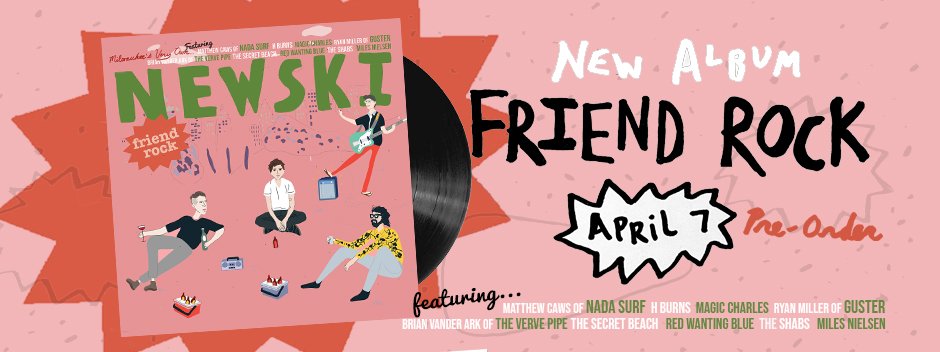Acclaimed singer-songwriter Stephen Kellogg chats about the struggle for patience and discipline before diving into artificial intelligence, job-replacement, enforced leisure, and supporting a family as an indie musician.
More on Stephen: https://www.stephenkellogg.com/
If you like the pod, consider supporting it monthly here: https://www.patreon.com/BrettNewski1
Kellogg and Newski on air.
EXCERPT:
Brett: As the world becomes automated each year, with humans becoming more irrelevant and jobs being taken away by robots, do you ever think the arts or musicians could get replaced?
Stephen: That’s a cool question. I don’t know! We have been replaced in some way. Music changes, right? The product that we share with the world is not consumed in the same way as it was before, and it’s always been that way. I worry about my own relevancy, and being replaced, because this has been my livelihood and continues to be.
So I worry about what I’ll be able to offer for people that they won’t just take for free, or have for free. How will I continue to be able to make the art I want to make. Maybe that’s the reason I ended up writing my book. Thinking, well, this is still a physical thing.
It does feel like there’s a few more years on books than there is on albums.
Brett: I agree, yeah. I feel that book stores have a long life ahead of them. I love reading books. It seems like that will be a reliable medium for a while.
Stephen: Maybe another five or ten years, anyway. I thought that CDs and stuff would stay. I’ve never been forward thinking, and I don’t enjoy not having anything physical to sell. I’m releasing a new song, and I wonder, where do the musicians who are on this get credited? Where do people find out about the song? It’s not even part of music anymore like it was.
Brett: And CDs didn’t really last that long, right? They were big in the early 90s. If you had money in 1992, you could buy CDs, and then got cheaper, but now they’re toast. You just see them on the road, split in half. Roadside records.
Stephen: Exactly. And what do you do when you share a piece of music, now?
Brett: That’s a great question. I’m trying to get into the mindset of quality over quantity. Even some of my favorite bands are putting out a song a week, and so much of it is trash, and I’m liking the band less. My philosophy these days is that you can make one great song every six months, with one killer video, and put your gusto behind that. Just do that two times a year, and really punt those songs, and maybe attach a B-side to it, that’s been an effective maneuver on our end.
But as far as physical units, outside of vinyl, I don’t know. Maybe you buy the song, and you get a free squirt in the mail, or you get a Stephen Kellogg bobblehead in the mail?
Stephen: We actually looked into that! I knew we were going to sell like 25 of them, and the minimum order was a thousand, so I decided against falling down that rabbit hole.
Brett: Going back to automation, and robots taking over jobs in the arts. Let’s say you have a robot that can sing and play guitar beautifully, and you can’t tell it’s not human. Or, you can connect yourself to an audio device, and as you listen to a song the device will track what makes your dopamine go up and down based on what you like. Would people sign up for that, knowing they’re listening to fake music?
Stephen: Like they’re being tracked? That’s a good question. My faith in humanity is at such a low ebb right now that I think people would just do it, and wouldn’t believe it was actually happening that way. Increasingly there seems to be no basis in truth, truthfulness is really under attack in the world.
I think that would still apply for the arts. If you say, “I like this music” and they say they’re roadmapping your rain, and pressing buttons, and there’s nothing artistic, they would just be like “I like this music, don’t tell me what to do.”
*full audio above



